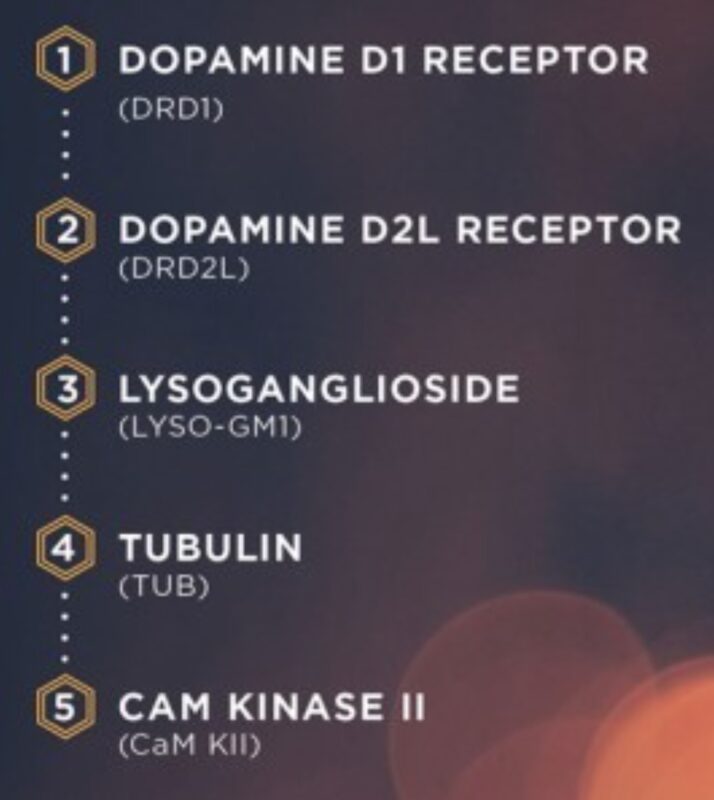The Autoimmune Brain Panel™ and Its Role in Treatment-Resistant Neuropsychiatric Disorders
Published on 7 November, 2024
Understanding Treatment-Resistant Symptoms
Globally, as many as 60% of patients suffering from neurological, psychiatric, and behavioural disorders do not respond to standard treatments (1). This alarming statistic highlights a significant gap in our understanding of these conditions. Recent evidence suggests that treatment resistance in some cases may stem from undiagnosed immune dysfunction, often triggered by infections.
The Role of Immune Dysfunction
The link between immune dysfunction and psychiatric disorders has gained increasing recognition in recent years. Notably, researchers have indicated that in the context of COVID-19, cognitive, emotional, and behavioural symptoms may arise from infection-related immune changes affecting the brain (2). Studies from the National Institutes of Health have demonstrated that brain inflammation caused by COVID-19 can lead to mood disturbances and cognitive deficits reported by patients with long-COVID (3).
Introducing the Autoimmune Brain Panel™ (formerly known as the Cunningham Panel™)

For individuals whose symptoms persist despite various treatments, hope lies in innovative diagnostic tools like the Autoimmune Brain Panel™. This unique test is designed to determine whether neurologic or psychiatric symptoms may be linked to underlying autoimmune dysfunction. Identifying an autoimmune process is crucial, as treatment strategies shift from merely addressing symptoms with psychotropic medications to targeting the underlying immune dysfunction.
What is the Autoimmune Brain Panel™?
The Autoimmune Brain Panel™ encompasses a series of high-complexity blood tests that assist clinicians in assessing whether neuropsychiatric symptoms can be attributed to treatable autoimmune dysfunction. The panel measures specific autoimmune antibodies that target brain structures, these are:

These markers are human serum Immunoglobulin G (IgG) levels by Enzyme-Linked ImmunoSorbent Assay (ELISA).
The markers have been carefully selected based on their association with a range of neurological and psychiatric symptoms, such as tics, OCD-like behaviours, ADHD, anxiety, and depression. Elevated levels of these antibodies may indicate an infection-driven autoimmune process, guiding clinicians toward more effective treatment strategies.
Who Can Benefit from Testing?
Individuals experiencing neurologic and/or psychiatric disorders, particularly those who have not improved or whose symptoms have worsened with medication, may find the Autoimmune Brain Panel™ beneficial. In some patients, common infections can incite an autoimmune reaction, causing antibodies to mistakenly attack healthy brain tissue, especially in a region known as the basal ganglia. This can lead to brain inflammation and disrupt normal receptor and cell function, resulting in various neurologic and psychiatric symptoms.
Patients with autoimmune-induced neuropsychiatric disorders often do not respond to conventional psychotropic medications and may require anti-infective and immunomodulatory treatments to alleviate their symptoms.
The Importance of Testing
The Autoimmune Brain Panel™ provides crucial laboratory evidence of underlying autoimmune processes in patients with neuropsychiatric symptoms. By identifying an autoimmune component, clinicians can significantly alter the course of treatment.
Typical treatment regimens often focus on eradicating infections, reducing inflammation, and applying immunomodulatory therapies as necessary. Early diagnosis and intervention have been shown to enhance recovery outcomes, and with appropriate treatment, symptoms often improve significantly or resolve completely (4&5).
Finding New Pathways to Healing
For those facing persistent neurological or psychiatric symptoms, the Autoimmune Brain Panel™ can provide crucial answers. With state-of-the-art testing and targeted care, there is a path to improved quality of life.

Moleculera Biosciences, Inc., is a precision medicine company founded to transform how medicine is practiced for patients suffering from chronic disorders driven by inflammation and immune dysfunction.
They are intently focused on the discovery and development of next-generation technologies for the identification, diagnosis, and treatment of patients suffering from immune-mediated neuropsychiatric, cardiovascular, Long-COVID and neuro-degenerative disorders.
Moleculera Biosciences is best known for its outstanding work in the field of PANS/PANDAS.
For further information please see https://aonm.org/moleculera/
To order the Autoimmune Brain Panel™ please contact AONM on +44 (0)3331 210 305 or email support@aonm.org.

Here is a presentation by Gilian Crowther, Director of Research of AONM, given during a training session where she explains the Autoimmune Brain Panel and the value it has in determining the extent to which auto-immune conditions had previously been considered as a ‘mental illness’.
If you would like to subscribe to our newsletter and mailing list for any promotional offers and events such as live webinars and training for Practitioners, please send us your details via our Contact Page.
References
- Howes, O. D., et al. (2022). “Treatment resistance in psychiatry: state of the art and new directions.” Mol Psychiatry 27(1): 58-72. https://www.ncbi.nlm.nih.gov/pmc/articles/PMC8960394/
- Bower JE, Radin A, Kuhlman KR. Psychoneuroimmunology in the time of COVID-19: why neuro-immune interactions matter for mental and physical health. Behav Res Ther. 2022;154:104104. doi:10.1016/j.brat.2022.104104. https://www.ncbi.nlm.nih.gov/pmc/articles/PMC9075982
- Bower JE, Radin A, Kuhlman KR. Psychoneuroimmunology in the time of COVID-19: why neuro-immune interactions matter for mental and physical health. Behav Res Ther. 2022;154:104104. doi:10.1016/j.brat.2022.104104. https://www.ncbi.nlm.nih.gov/pmc/articles/PMC9075982/
- Shin Y-W, Lee S-T, Park K-I, et al. Treatment strategies for autoimmune encephalitis. Therapeutic Advances in Neurological Disorders. January 2018. doi:10.1177/1756285617722347. https://pubmed.ncbi.nlm.nih.gov/29399043/
- Brenton JN, Goodkin HP. Antibody-Mediated Autoimmune Encephalitis in Childhood. Pediatr Neurol. 2016 Jul;60:13-23. doi: 10.1016/j.pediatrneurol.2016.04.004. Epub 2016 Apr 12. PMID: 27343023. https://pubmed.ncbi.nlm.nih.gov/27343023/



